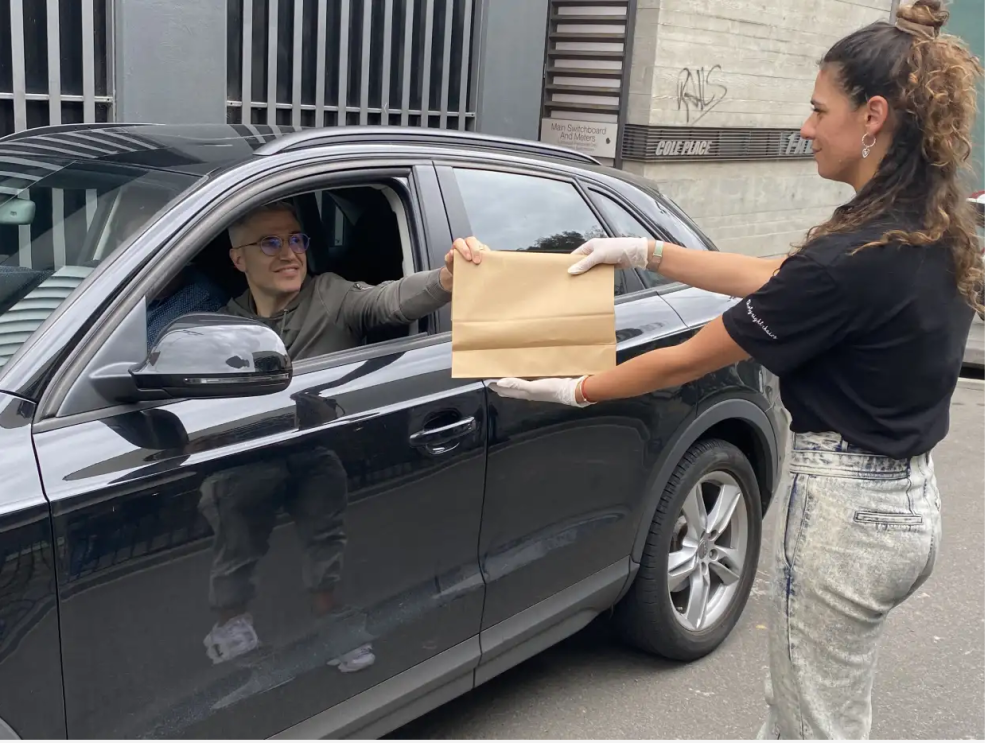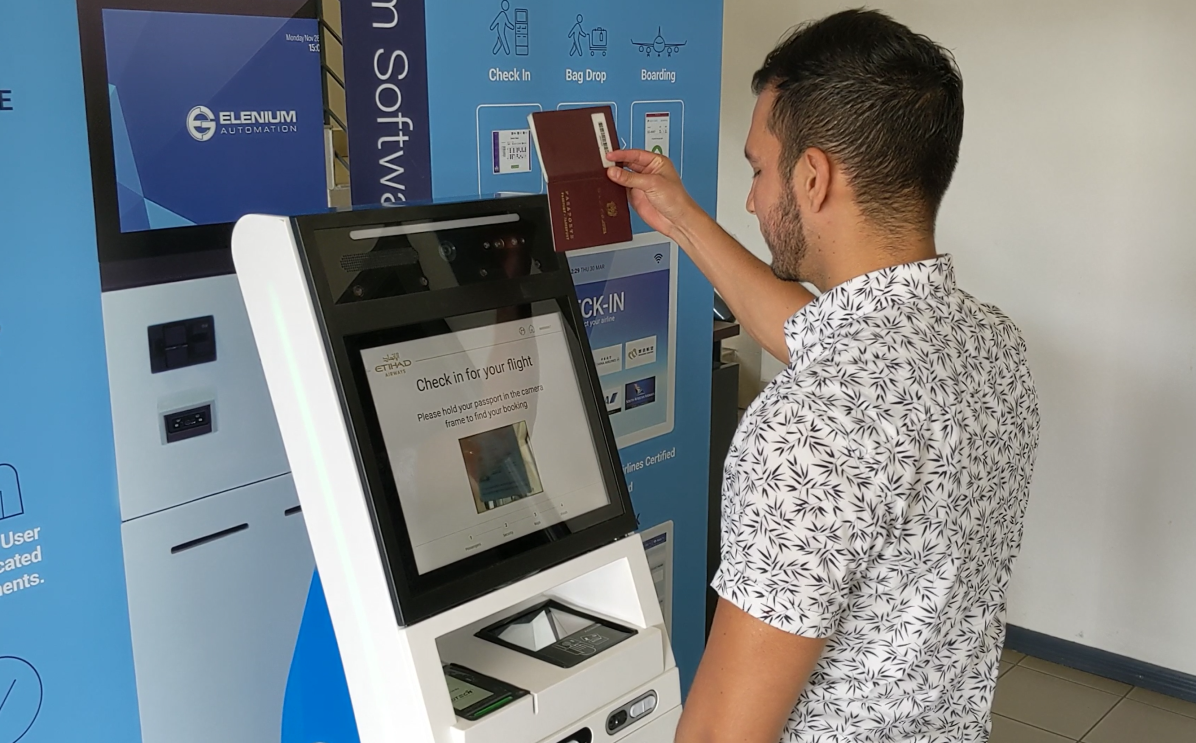The COVID-19 pandemic has had a massive impact on the way people live and work. And, while it has been very disruptive for almost everyone, the crisis has also sparked new waves of innovation, as retailers, restaurants, software developers, and more have adapted. We’re inspired by the rapid rate of innovation as Australian customers of all sizes use cloud to create new business models, and work to reduce the impact on our communities, now and into the future.
Helping people get back to work safely
Much of the innovation we’re seeing is focused on keeping people safe by reducing the potential spread of the virus. In Queensland, local computer vision technology specialists Bigmate, created a new system called Thermy that can easily detect if a person has an elevated body temperature – one of several possible symptoms of infection.
Bigmate’s General Manager Brett Orr said his company has more than twenty years’ experience interpreting the content of video streams and using this knowledge to keep workers safe in industrial workplaces, and is now using that expertise to interpret images from thermal cameras.
Thermy can observe the body temperature of multiple people at the same time, even if they are walking, which is ideal for checking temperatures as people enter a building. The system is capable of detecting differences in temperature as small as 0.1 degrees.

Orr said Bigmate had been working Thermy’s underlying technology for some time and planned to release it later this year. But with the rapid onset of COVID-19, the company swung additional resources behind Thermy’s development and had it ready for customers in just two weeks.
He added that the use of cloud technology was critical to the speedy delivery. “We have put all our infrastructure on AWS, and that allows us to scale quickly for testing, rather than having separate test environments,” he says.
Bigmate received its first two orders for Thermy within days of its release, including a large industrial company and an aged care facility.
“We are proud of what our team has developed and hope this technology can get people back to work sooner and safer than ever before,” Orr said.
Opening up new business models
While Bigmate is working to keep people safe, other customers are finding solutions to keep businesses running smoothly until the crisis passes, and open up new markets for industries that are impacted by closures. One of these is HungryHungry, an in-venue ‘order at table’ platform and digital menu developed for restaurants and cafes, founded by Mark Calabro and his business partner Shannon Hautot.
Like Bigmate, Calabro said HungryHungry had to quickly pivot the business with COVID-19 closures, and use cloud technology to develop software that offers venues their own branded platform to facilitate online ordering, delivery, and pickup options when the crisis hit. These options are now essential for many hospitality businesses, with many restauranteurs pivoting for the first time to new takeaway and delivery options as they respond to COVID-19 closures.

“A big part of who we are and why we do it is about helping the hospitality business thrive,” Calabro said. “We want restaurants to be able to make money, even if they are closed to patrons, and so we provide them with technology that is easy to use to manage the new reality of take-out, delivery, and pickup alternatives which works for their business.”
Restaurateurs are responding positively, with the company’s rate of new restaurant signups jumping from 10 new customers per week earlier this year to hundreds in the past week. HungryHungry’s new customers range from local pastry shops like Melbourne-based Lune Croissanterie to restaurants like Tonka, that added new frozen meals and “survival kits” with pantry staples like milk, bread, and flour to the menu.
Calabro said AWS has been a critical factor in HungryHungry’s success, enabling them to quickly bring on new customers and manage transaction volumes that doubled in a week.
“Having AWS is an integral part of us delivering the technology that keeps our customers trading,” Calabro said. “We are now working with venues that we wouldn’t have imagined we’d be working with for years.”
Tackling future transmission
Other customers are casting their minds to how the world might look once the crisis passes, how people’s behaviours will change, and how to instil public confidence and safety when travelling in a post-pandemic world. One of those possible changes is people’s willingness touch surfaces in public places, which naturally creates a significant problem for the operators of touchscreen kiosks.
Australian-born Elenium Automation, which specialises in mass transit automation, has been thinking about this problem since the outbreak of COVID-19 and worked with AWS to develop touchless technologies that can detect an individual’s viral infection indicators such as temperature, heart rate, and respiratory rate. This type of technology can be used anywhere where there is a requirement to physically ‘check-in’ such as airports, hospitals, or aged care homes.
The company’s CEO Aaron Hornlimann said the original goal was to help people with limited mobility who might have problems using touchscreen kiosks.
“But when COVID-19 happened it made a lot of sense to repurpose that same technology for the broader population because people won’t want to touch surfaces when they are allowed to travel again,” Hornlimann said.

Elenium uses a combination of AWS’s voice and facial recognition tools with other artificial intelligence to identify people and process their requests without the need to physically touch anything. This includes identifying a person’s voice in a noisy airport environment by using a combination of motion-detection and directional microphones.
Hornlimann said the company is also working to launch additional capabilities such as teleconferencing systems to alert staff members on the premises who can make further assessments when someone’s vital signs test outside of an acceptable tolerance.
He said this solution will be launched in Abu Dhabi airport in the first week of May 2020 and will appear in a host of other airports over the coming months. Elenium will also trial the technology with hospitals and aged care homes in the coming weeks where screening visitors and employees will be essential in future.
Like Bigmate and Hungry Hungry, Hornlimann said his company’s original plan was to bring these technologies to market later this year, but when the COVID-19 crisis created a more urgent need, collaborating with AWS proved critical in bringing these solutions to market quickly.
“Rather than us having to build all of those AI technologies ourselves we could use AWS as the building blocks to build that capability in weeks rather than months or years,” Aaron says.
Each of these customers has been able to rise up and solve specific challenges bought about by the current pandemic. These are just a few of many organisations working tirelessly to manage the impact of COVID-19 and in every instance, their usefulness will live on well after the crisis passes. It is our hope that efforts like these will help us all move safely through this difficult time and help us adapt for a better future.












